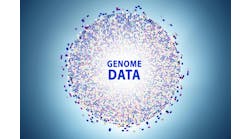Boston-based Partners HealthCare says its biobank now has more than 100,000 participants, making it one of the largest in the country.
Other examples in the United States include the Personalized Medicine Research Project at Marshfield Clinic in Marshfield, Wisc.; BioVu at Vanderbilt University School of Medicine in Nashville, Tenn.; the Mayo Clinic Biobank in Rochester, Minn.; the Kaiser Research Program on Genetics, Environment and Health in Oakland, Calif. In June 2016, the National Institutes of Health announced that Mayo Clinic Biobank would be the central repository for processing and storing biospecimens from 1 million participants in the All of Us Research Program, which would make it the largest national biospecimen resource focused on precision medicine.
Scott Weiss, M.D., who is the principal investigator at the Partners Biobank and scientific director of Partners HealthCare Personalized Medicine, called the 100,000 mark a significant milestone. “Greater participation in the biobank enables us to increase the scale and scope of our research and provides our researchers with access to data and information that would otherwise take them years to source,” he said in a prepared statement. “We are already seeing tremendous results from the biobank, both for individual patients where a health concern was identified to large studies that are helping us to identify diseases like Alzheimer’s and cancer in patients who have yet to develop any symptoms.”
Researchers and clinicians at Brigham and Women’s Hospital, Massachusetts General Hospital, and other Partners institutions are using the biobank to study how genes, lifestyle, and other factors affect people’s health and contribute to disease. Participants in the biobank provide a small blood sample which is linked to their electronic health record data as well as a self-reported health survey and their family history information. The blood specimens are then genotyped and stored in a research sample and data repository, which is available to all Partners researchers.
Through the genotyping of samples, biobank researchers have also been able to detect potential health issues for participants before any clinical symptoms were present. In some cases, participants knew of prior family history that they were able to confirm through the genotyping process but in other cases, health concerns for which they had no prior knowledge or symptoms were detected.
To date, the biobank has provided samples or data to more than 200 research studies, including current studies focused on:
- the genetic causes of cardiomyopathy
- genetic impact medications like antidepressants
- the development of a clinical algorithm to identify risk for Alzheimer’s disease in early midlife
- the role of genes in rheumatoid arthritis
- evidence of circulating tissue DNA is blood as a predictor of cancer
- the role of genetics and epigenetic changes to DNA in cerebral aneurysms
- polygenic risk score associations between sleep duration and diseases
“The biobank has truly revolutionized the way that we do research at Partners and the more participants we have, the more powerful the resource is,” said Elizabeth Karlson, M.D., Division of Rheumatology, Immunology, and Allergy at Brigham and Women’s Hospital, in a statement. She was one of the original leaders of the biobank and is currently developing machine learning algorithms to define disease phenotypes for genomics research in the biobank. “In addition to the sample size, a key differentiator for our biobank is the electronic portal that we developed to help researchers search for disease phenotypes and request the data samples that they need for their studies,” she added.

